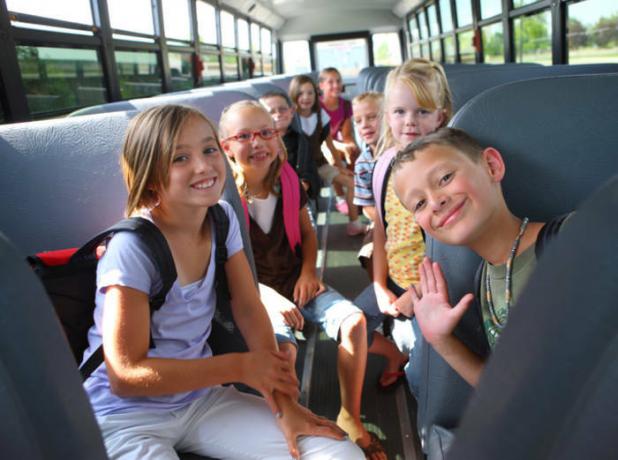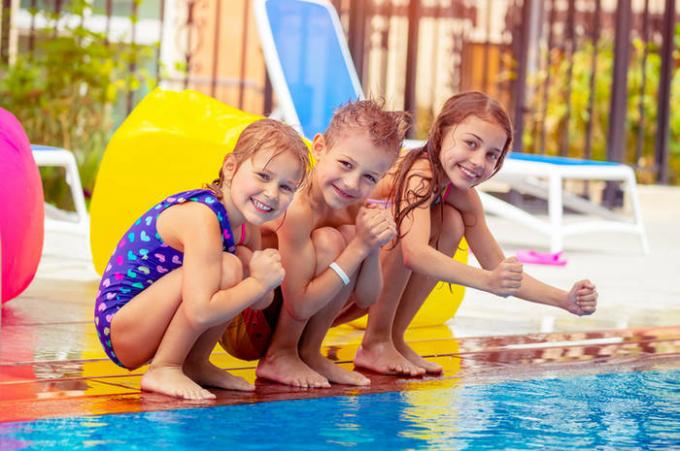An important reminder for parents on choosing a camp for their child. What to look for and what questions to ask to check the safety level in the children's camp
Summer holidays are a joyful time for children and a stressful period for parents. You need to decide what to do with your child for three whole months. So that it is not boring, with health benefits and most importantly - safe. It is good if there are grandmothers in the village: in the summer, they can be shifted to take care of small children and look after teenagers. If the grandmothers are far away or also work, children's camps come to the rescue. The choice today is truly colossal: there are English, sea, sports, equestrian and even golf camps. How to choose from all this diversity exactly the camp in which the child will be easy and comfortable, and the parents will not be afraid for his life and health? Child safety expert, head of the iKid educational project tells about this on Facebook. Elena Lizvinskaya.
If you decide to send your child to a 24-hour children's camp, your child's safety comes first. Even if the camp is located not far from the city, and it takes 1.5-2 hours to get there in an emergency. What can I say about camps in another area or at sea? You must be firmly convinced that the safety of children in the camp is under ironclad control, all possible force majeure has been taken into account, and the algorithm for the actions of camp workers in unforeseen situations is debugged and works like clock.
Therefore, even at the stage of choosing a camp from the mass of offers on the Internet, Elena Lizvinskaya advises to pay attention to the following points:
Documentation
It is imperative to check if the camp is working legally. You have every right to request from the administration a certificate of registration of a children's health institution (DOW) and the EDRPOU code. Using this code, the camp can be checked in the State Register of Property Facilities for Recreation and Recreation of Children. The register was opened to the population the year before last, and is in the process of filling. Therefore, not all preschool educational institutions can be found in it yet. However, the presence of your camp in the state register is a definite plus.
Contract
Each camp (no matter whether it is day or round the clock) must provide you with a contract. This is a basic document, which spells out the rights and obligations of the camp in relation to the child, as well as the rights and obligations of the child and his parents. It should also clearly state who is responsible for the child during his stay in the camp. The agreement must be carefully read, and not be afraid to ask clarifying questions. Please note if this document contains a clause on compensation for payment in the event that the child for some reason was taken away before the end of the shift.
Conditions for the carriage of children

Supervise how your child is transported to the camp / istockphoto.com
It is optimal if you take the child to the camp yourself by personal transport. However, if for some reason this is not possible, be sure to specify who and how will transport children to their destination and directly in the camp (if, for example, the program includes excursions). Ideally, this should be a licensed special transport carrier (marked "Children"). It is also very important how many accompanying persons will be on the transport with children. If it is a 2-3 hour bus ride, children will get off at the stops. It is important that there are enough adults for the number of children, and they can keep track of everyone.
Safety conditions
Feel free to ask what conditions are provided for the safety of children in the camp. Are there 24/7 security and surveillance cameras? Is the entrance of unauthorized persons to the territory restricted? What is the access system in the camp? How freely can children move around or outside the camp area? Also, be sure to clarify how the camp administration will act in the event of a fire, whether there are fire exits in the children's buildings and the possibility for emergency evacuation.
First-aid post

Ask if the camp has a full-fledged first-aid post / istockphoto.com
This is a prerequisite for round-the-clock camps. If day camps can be limited only to a nurse, then a full-fledged first-aid post should be equipped here. Ideally, there should even be a separate room (ward) where you can isolate the child in case of any infectious disease. When asking about the first-aid post, be sure to find out the order of actions that will be taken at the camp if the child gets sick or get hurt
Insurance
Some camps include a child's stay in the price accident insurance. This is a very correct and well thought-out decision. If your camp does not offer such insurance, be sure to buy it yourself. Now many insurance companies offer such a product, adapted specifically for a child's trip to a preschool educational institution. The insurance is limited in time (for example, for 21 days), covers the main risks and is very inexpensive.
Camp procedure
Ideally, this procedure should be enshrined in a separate document. If there is no such document, we will definitely find out about: the number of children in the group, the number of counselors in the group, the regime of the day, the program of events and activities in the camp. How children are broken down into groups - by age or by some other principle. Also try to find out as much as possible about the counselors who will be responsible for your child throughout the whole shifts: how old are they, do they have experience working with children or specialized (pedagogical education), do they have sanitary books.
Accommodations
Clarify the conditions in which the children will live in the camp: in which buildings the accommodation is offered, how many floors are there (and is there upper floors balconies), how many children will live in one room, where is the bathroom and how many children it will calculated. What the child should, what he can and cannot take with him to the camp (this also applies to gadgets).
Food

Specify who will prepare food for children and how / istockphoto.com
Several points are important here. The first is catering. If this is catering: who will order food from, is this supplier certified. If it is cooking on the campus: are there conditions for cooking and storing it (a separate catering unit). The second point is the menu. Even if your child is not allergic to certain foods, they may have their own dietary habits (for example, not eating milk products). Check if the child will have a choice if he does not eat something in principle.
Gadgets
An important point is the possibility of your connection with the child at any time. Find out if you can take a mobile phone to the camp. If the smartphone is banned, ask if it is possible to put a regular push-button phone to the child or give a smart watch instead. Also, you should be able to communicate with counselors - in case the child does not respond or his gadget is discharged.
Swimming in a pool or pond

Find out if there is a lifeguard with the children while swimming / istockphoto.com
In summer, this issue is more relevant than ever, and safety on the water comes first. Be sure to ask if there is a lifeguard on duty at the camp when the children are bathing. What groups do the children swim in (the whole squad or there is a breakdown into small groups of 7-10 people). How many adults at this time are there for a group of children. Are children provided with inflatable boats or should they be taken with them? Will someone supervise that all children put on circles and vests while swimming.
After you have checked all the above points, do not be lazy to collect "insider" information about the camp. Find the camp website, its pages on social networks, read reviews (do not forget that reviews on the Internet should be treated with a grain of salt). You can request real impressions of the camp in parent groups on social networks - usually content they are moderated there, so the probability of stumbling upon "paid" information is lower than on sites with reviews. Ideally, even before paying for the camp, agree with the administration about a study visit: this way you can inspect the camp territory on the spot and see with your own eyes all the conditions of stay.
You will also be interested to read:
10 important things to consider when choosing a summer camp: a cheat sheet for parents
7 myths about children's camps that all parents fear: find out the truth


